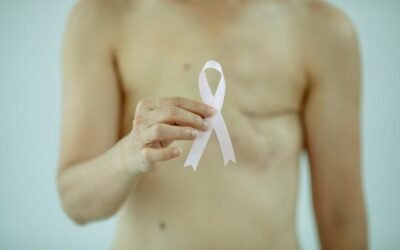Breast Cancer and Fertility: Preserving fertility during treatment
Being diagnosed with breast cancer can be overwhelming, and for many women, concerns about fertility and the ability to have children in the future can add to the emotional burden.
However, advances in medical technology and fertility preservation options offer hope to those who wish to become parents after breast cancer treatment. In this blog post, we will explore the impact of breast cancer treatment on fertility, as well as strategies to preserve fertility during treatment.
The Impact of Breast Cancer Treatment on Fertility
Breast cancer treatments such as chemotherapy, radiation therapy, and hormone therapy can have a significant impact on fertility.
The effects can vary depending on the individual’s age, the specific treatment regimen, and the duration of treatment. Chemotherapy, for example, may cause temporary or permanent damage to the ovaries, leading to fertility issues. Radiation therapy to the pelvis or hormone therapy can also affect reproductive organs and hormone levels.

Options for Preserving Fertility
- Egg Freezing (Oocyte Cryopreservation): This method involves stimulating the ovaries to produce multiple eggs, which are then retrieved and frozen for later use. Egg freezing can be a suitable option for women of reproductive age who do not have a partner or who do not wish to use donor sperm.
- Embryo Freezing (Embryo Cryopreservation): Embryo freezing involves retrieving eggs, fertilizing them with sperm, and then freezing the resulting embryos. This option is suitable for women in committed relationships or those who are open to using donor sperm.
- Ovarian Tissue Freezing: In this procedure, a small piece of ovarian tissue is surgically removed and cryopreserved. After completion of cancer treatment, the tissue can be transplanted back into the body to restore ovarian function. This option may be suitable for prepubescent girls or women who cannot delay their cancer treatment.
- GnRH Agonist Injections: Gonadotropin-releasing hormone (GnRH) agonist injections may be used before and during chemotherapy to try to protect the ovaries from the toxic effects of chemotherapy. This method is still being studied and is not guaranteed to preserve fertility.
Planning and Timing
It is crucial to discuss fertility preservation options with a healthcare professional as early as possible after a breast cancer diagnosis. The timing of fertility preservation is critical, as some treatments may need to be delayed in order to undergo the procedures. A fertility specialist can help determine the most appropriate option based on age, medical history, treatment plans, and personal preferences.
Emotional Support
Dealing with a breast cancer diagnosis and fertility concerns can be emotionally challenging. Seek emotional support from loved ones, support groups, or professional counseling services specializing in fertility and cancer. Connecting with others who have gone through a similar experience can provide encouragement and help alleviate anxiety.
Conclusion
Breast cancer treatment can have a significant impact on fertility, but there are options available to preserve fertility and increase the chances of having children in the future. Egg freezing, embryo freezing, ovarian tissue freezing, and GnRH agonist injections are some of the options that can be explored. Early planning, discussion with healthcare professionals, and emotional support are essential for navigating the complexities of breast cancer treatment while preserving fertility. Remember, there is hope for building a family after breast cancer.
Homeopathy for Post-Surgical Healing in Breast Cancer Patients
Post-surgical healing in breast cancer patients involves managing physical pain, inflammation, and emotional recovery....
Supporting Emotional Resilience During Breast Cancer Treatment with Homeopathy
Breast cancer treatment can take a significant emotional toll on patients, often leading to anxiety,...
Homeopathy for Skin Care During Radiation Therapy for Breast Cancer
Radiation therapy is a common treatment for breast cancer, but it often leads to side effects such as skin irritation,...





